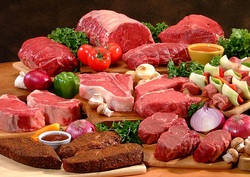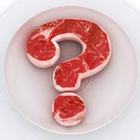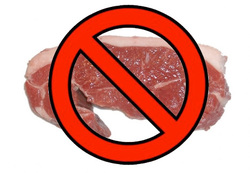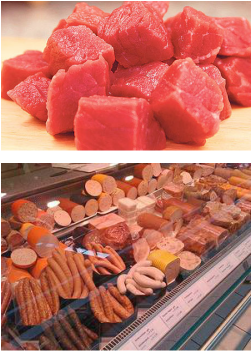 By Heather I come from a region of the world where people LOVE their meat. In my high school, there wasn’t a single vegetarian, not one. Indeed, meat eating is encouraged over the consumption of carbohydrate-rich foods by many diets including the Atkins diet and the Paleo diet. Apologies to any Paleo fans that abhor being included in the same line as Atkins. My view, however, is that although meat is good (studies show that when it was added to the diet of cavemen there were evolutionary benefits) most of us eat far too much of it. In deciding the type of diet that's best Paleo fans look back at ancient times when no one was fat. Their logic appeals to me too but I don't really agree with the conclusions. I don’t have to imagine ancestral times to get a picture of basic living: I can look at my own village in Malawi and see how they live now. As much as they would wholeheartedly welcome the daily consumption of meat, there are obstacles: 1. They don’t have any fridges to store meat; 2. Killing the animals they keep for consumption too often would deplete their stock in no time at all: Even if the village entered into a co-operative scheme and slaughtered one family’s animal at a time based on a rota, they couldn’t do that daily or even weekly without risking rapid depletion of livestock. There’d also be considerations like killing animals of the same size and what do you do if someone’s farm is destroyed by a disease and so forth. 3. They can catch wild animals but not every day; wild animal sightings are few and far between; 4. When the weather is poor hunting down animals is even less likely. The above problems existed centuries ago. Indeed, in reading Born to Run by Christopher McDougall, he found that the very fit Tarahumara people seldom eat meat and subsist almost entirely on corn and other wholefoods like beans and legumes.  Why is too much meat bad? It’s associated with an increased risk of certain diseases: heart disease, diabetes, stroke and cancer. Scientists aren’t sure why but they suspect the iron and saturated fat in red meat, the nitrates used to preserve them or carcinogenic compounds created in the cooking process increase the risks.  How much meat should we eat? You get conflicting answers depending on who you ask! According to Mayoclinic (June 2010), a Harvard study collated 20 studies to see if different types of red meat – processed vs. unprocessed – had different effects on the risk of getting heart disease, diabetes and stroke. They found that: Red meat: 100 grams a day (roughly the size of a deck of cards) was not associated with a higher risk of heart disease and posed only a slightly higher risk of diabetes. Processed red meat: About 50 grams a day was associated with a 42% higher risk of developing heart disease and a 19% higher risk of diabetes. Total red meat: A daily total of 100 grams of processed and unprocessed red meat wasn’t associated with a higher risk of heart disease. However, it was linked to a 12% increase in the risk of diabetes.  A newer, widely reported (March 2012) Harvard study on red meat (see LA Times & The Telegraph) found the opposite! The LA Times reported that “any amount and any type - appears to significantly increase the risk of premature death, according to a long-range study that examined the eating habits and health of more than 110,000 adults for more than 20 years.” According to the study, adding the same deck-of-cards quantity of unprocessed red meat to one's daily diet was linked to a 13% higher chance of dying during the course of the study. Adding a daily serving of processed red meat e.g. two slices of bacon increased that 13% chance to 20%. Substituting red meat with the following foods led to a reduction in mortality risk by:
 What is unprocessed meat? The least processed meat you can eat involves killing the animal and eating it, raw. But generally, you can consider the following to be unprocessed even if they’ve been cooked, grilled or fried:
What is processed meat? Any meats that has been preserved, especially using nitrates.
So what should you do about meat? I’m not one who stops doing something just because a study tells me it’s bad; I take the information on-board (given it is science) and make a judgement about how much I want it to impact my life. The fact is, and at risk of stating the obvious, we’re all going to die someday. I want to live healthily so that I can enjoy life but I don’t believe every action I take should be clouded by fear of getting this disease or that. That said, it is well advised to eat less meat and to consider substitutes like legumes, whole grains, poultry and fish. Your meat cravings can be satisfied by making meat a secondary part of your meal e.g. meat bits in a veg dish rather than a full-on steak. My current philosophy on food is that the less processed it is, the better. So my diet is very high in grains, legumes, fruit and veg. I don’t eat meat every day; there are 21 meals in a week (breakfast, lunch and dinner times seven) and I have meat in about three or four of those – unless I’m on holiday and sampling new cuisine, of course!  Although your personal finances and your business success are my primary interest, I believe you only operate at peak efficiency when you're fit and healthy. If you feel good, it filters through to your work. To help you with that, click for your free ebook: The Quick Guide to Sexy
0 Comments
Leave a Reply. |
By Heather
|
Heather Katsonga-Woodward, a massive personal finance fanatic.
** All views expressed are my own and not those of any employer, past or present. ** Please get professional advice before re-arranging your personal finances.
 RSS Feed
RSS Feed


